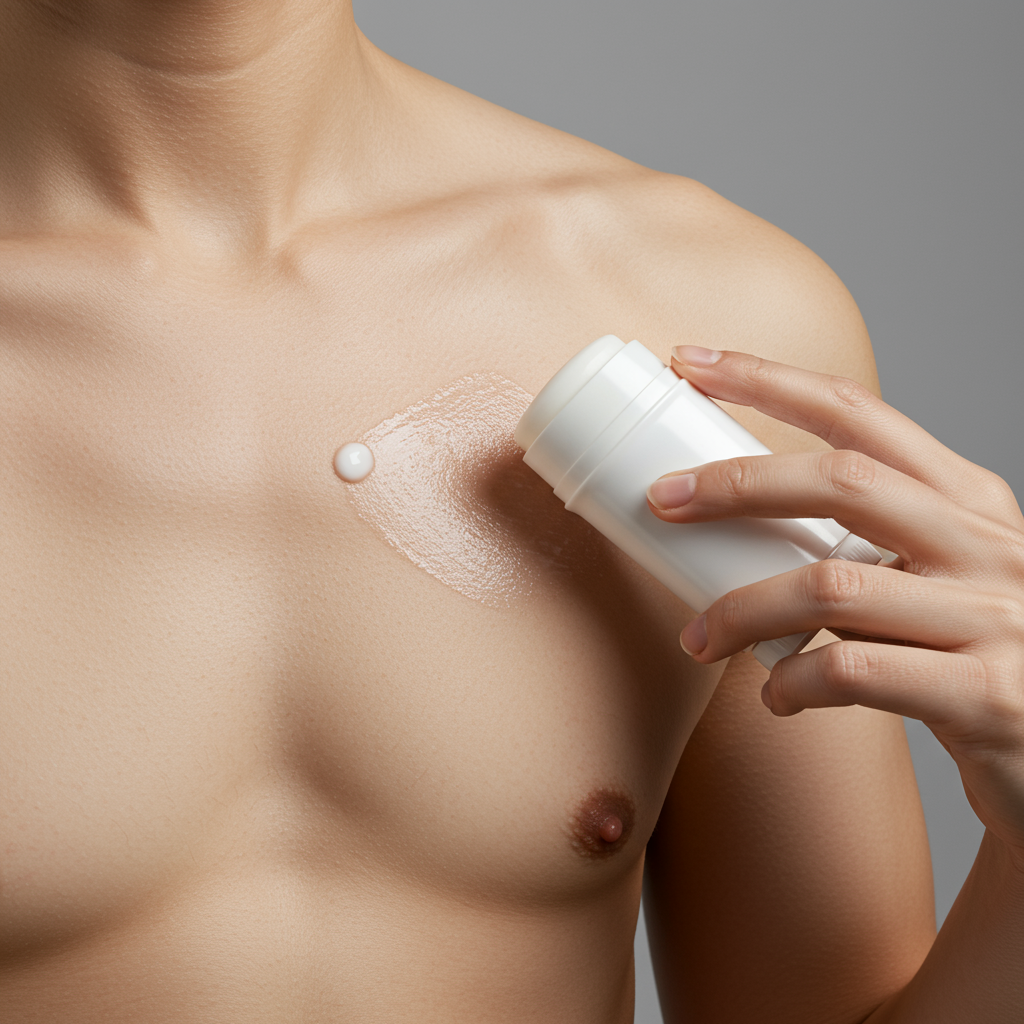Summer heat, stress, or just busy days can leave you feeling less than fresh, even after a shower. While your armpits are the go-to spot, sometimes you need a quick refresh or extra defense in other areas. Beyond traditional use, many seek simple hacks for managing body odor and staying comfortable throughout the day. Understanding how sweat and odor work across your body reveals effective strategies to feel your best.
Body odor, particularly the strong kind, isn’t simply sweat itself. It’s the result of bacteria on your skin breaking down sweat. Different sweat glands produce different types of sweat. Eccrine glands, found over most of your body, produce watery sweat mainly for cooling. Apocrine glands, concentrated in areas like armpits and groin where hair grows after puberty, release a thicker, milky fluid. It’s this apocrine sweat that interacts with bacteria to create stronger odors.
While thorough bathing is the foundation of hygiene, tactical use of deodorant or antiperspirant can offer targeted support.
The Basics: Deodorant vs. Antiperspirant
Before exploring alternative application spots, it’s crucial to know the difference between the two main types of products. Antiperspirants are regulated as over-the-counter drugs because they contain active ingredients, typically aluminum salts, designed to block sweat glands. By reducing sweat output, they also help control odor because odor-causing bacteria need moisture to thrive. Antiperspirants are primarily intended for underarm use as blocking sweat elsewhere could interfere with the body’s natural cooling.
Deodorants, on the other hand, are regulated as cosmetics. They don’t block sweat but work to mask or neutralize odor once sweat is present. They might contain fragrances, antibacterial agents, or ingredients that absorb wetness. Many products combine both functions.
Thinking Beyond the Pit: Strategic Application
While not recommended for widespread use or to replace regular bathing, some individuals find specific situations where applying a deodorant or antiperspirant product (often a spray or a specific ‘body’ formulation) strategically can help manage localized odor or moisture.
The original article’s author, Emma Nadler, shared her personal hack: using spray deodorant on clothing, particularly in the armpit area, for a quick refresh between washes. She also mentions spraying it on the inside lining of coats or sweaters. This approach isn’t about blocking sweat on the skin but more about targeting existing odor on fabric or adding a layer of scent. Using a clear, natural spray deodorant like Weleda Wild Rose worked for her, transforming her scent. However, experts note that traditional underarm deodorants aren’t designed for fabrics and could stain or damage them depending on ingredients, so patch testing is wise.
Some products are now marketed as “whole body” deodorants. These are distinct from antiperspirants and typically contain ingredients like fragrances, acids to alter skin pH, starches to absorb minor wetness, or zinc compounds to neutralize odor molecules. They are designed for areas like the groin, feet, or skin folds where apocrine sweat is more prevalent than eccrine sweat. However, experts are skeptical about the necessity of whole-body deodorants for most people, suggesting regular bathing is usually sufficient. Applying potentially irritating cosmetic ingredients to sensitive areas like the groin also carries risks of contact dermatitis.
For areas prone to friction or minor moisture accumulation that can lead to odor, a specialized body deodorant might offer some benefit, but always prioritize products formulated for sensitive skin if using in delicate areas.
Understanding Persistent Odor
If you experience noticeable body odor even shortly after showering, especially in the armpits, applying more deodorant might not be the root solution. Expert insights reveal several common reasons this occurs:
Antiperspirant Timing: Many people apply antiperspirant in the morning. Dermatologists and industry scientists agree that applying antiperspirant at night before bed is significantly more effective. Your body sweats less while you sleep, allowing the aluminum salts to form sweat gland-blocking “gel plugs” undisturbed. These plugs remain effective throughout the next day, even after showering.
Armpit Hair: Underarm hair can trap moisture and provide a larger surface area for odor-causing bacteria to accumulate. Removing or trimming armpit hair can help reduce odor.
Bacteria Imbalance: An overgrowth or imbalance of specific bacteria on the skin, particularly in the armpits, can cause persistent odor. Using an antibacterial body wash might help restore balance. Ensuring the skin is thoroughly dry after showering is also important, as bacteria thrive in damp environments.
Diet: Certain foods and drinks contain compounds that can be released through sweat, contributing to body odor. Common culprits include garlic, onions, cruciferous vegetables, red meat, and excess caffeine or alcohol.
Medication Side Effects: Some prescription medications can increase sweating (hyperhidrosis), potentially worsening body odor.
Skin Infections: Localized infections, perhaps from an ingrown hair, can cause odor in a single armpit.
Underlying Medical Conditions: Rarely, persistent or unusual body odor can signal an underlying condition like diabetes, thyroid problems, or kidney/liver issues.
If odor persists despite hygiene and product use, especially if accompanied by other symptoms, consulting a doctor is advisable.
Managing Overall Sweat & Odor
Beyond targeted product application, comprehensive strategies can help manage sweat and odor:
Hygiene is Key: Regular bathing, focusing on areas prone to odor (armpits, groin, feet), is the most effective method.
Antiperspirant Use: Apply antiperspirant to clean, dry skin at night for maximum effectiveness.
Wear Breathable Fabrics: Choose natural fibers like cotton or performance fabrics that wick moisture away from the skin. Avoid synthetics that trap heat and moisture.
Stay Hydrated: Drinking enough water helps regulate body temperature, potentially reducing excessive sweating.
Mind Your Diet: Identify and potentially limit foods that seem to increase your personal body odor or sweating.
Quit Smoking: Nicotine increases heart rate and body temperature, contributing to sweating.
Address Contact Dermatitis: Deodorants, especially fragranced ones, are common causes of itchy, red rashes in the armpits (contact dermatitis). If this occurs, stop using the product. Patch testing by a dermatologist can identify specific triggers. Choose hypoallergenic, unscented options.
- Consider Medical Help: For excessive sweating (hyperhidrosis) or persistent odor that impacts your life, a doctor can discuss medical treatments like prescription-strength antiperspirants, medicated wipes, Botox injections, or other therapies.
- www.theatlantic.com
- www.livestrong.com
- health.clevelandclinic.org
- nationaleczema.org
- www.vox.com
While a quick spritz might offer temporary relief on clothing, effective odor management involves understanding the causes of body odor, optimizing antiperspirant use, maintaining good hygiene, and making lifestyle choices that support overall freshness. Experimenting carefully with products and understanding the science behind sweat can help you feel more confident and comfortable in any situation.
Frequently Asked Questions
What areas besides armpits might benefit from deodorant use?
Some people apply specially formulated “whole body” deodorants to areas like the groin, feet, or skin folds, where apocrine glands are concentrated and odor can be stronger. However, experts note that regular bathing is often sufficient for most individuals, and these products are not a substitute for hygiene. Using products designed for sensitive skin is crucial if applied to delicate areas.
Why do my armpits still smell even after I shower?
Persistent armpit odor after showering can happen for several reasons. You might be applying antiperspirant at the wrong time (morning instead of night is less effective), have excess armpit hair trapping bacteria, have an imbalance of skin bacteria, or consume certain foods that affect body odor. Rarely, medical conditions or medication side effects can contribute.
Should I use antiperspirant or deodorant if I have sensitive skin or eczema?
If you have sensitive skin, particularly eczema or a history of contact dermatitis, choosing hypoallergenic and unscented deodorants or antiperspirants is important. Fragrances and other common ingredients like propylene glycol are frequent causes of allergic reactions in the armpits. If you experience redness, itching, or a rash, stop using the product and consult a dermatologist, who can perform patch testing to identify specific triggers.



